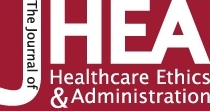Back Issue: Vol.8 No.3 (Winter 2022)
ISSN 2474-2309
Research Ethics
- Usman Haseeb
Address correspondence to: Usman Haseeb. 900 E Leigh St, Richmond, VA 23298. Email: haseebua@vcu.edu
Pages: 1-8
End-of-life care is a topic that many consider to be an uncomfortable one given its emotional, ethical, and legal complexities. The scope of legal death in the US was made clearer by the approval of the 1981 Uniform Determination of Death Act (UDDA). The act is completely adopted word for word by most US states, but there are states like Louisiana that adopted the UDDA with some included criteria for neurological death. It is important to note that the UDDA is a legal guide used to make legal and medical decisions rather than a law that must be followed completely. With the advancement of medical technology, individuals can be kept alive through a variety of medical interventions that sustain necessary physiological functions, such as breathing, in the absence of complete mental status or other basic functions considered to be fundamental to life These modalities at times blur the line between life and death, and disagreement exists on the technical definitions and applications of these terms. The result is an ethical gray area in which medical care can be provided, but the question of whether it should be provided remains. This article is meant to examine the ethical and societal implications of end-of-life care to an individual who- depending upon the definition- may be considered dead.
- Allison M. Young, MD
Address correspondence to: Allison M. Young, MD. Assistant Professor, Departments of Internal Medicine and Pediatrics Virginia Commonwealth University Health System. Email: allison.young@vcuhealth.org
Pages: 9-12
The COVID-19 pandemic created significant strain on adult hospitals. Pediatric hospitals are now experiencing similar strain in the setting of an early spike in RSV cases. Hospitals use ambulance diversion and inpatient transfer restrictions to reduce flow to the hospital. However, there are mortality and ethical concerns related to these methods. Other methods that are frequently explored are confined to individual health systems despite the capacity strain typically being widespread, impacting multiple hospitals across a region at one time. In the setting of seeing more frequent hospital strain in both adult and pediatric populations, it is important to examine the options available and to plan for similar events in the future with cooperation across multiple health systems in an effort to provide the best possible outcomes for patients in a region while minimizing moral distress among patients and providers.
